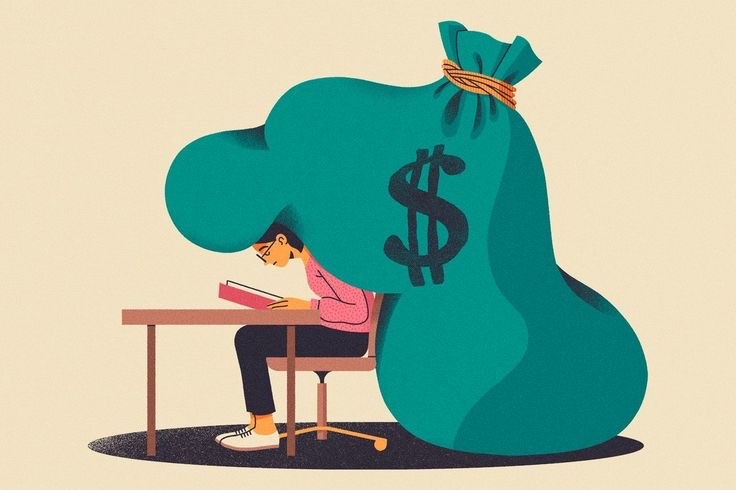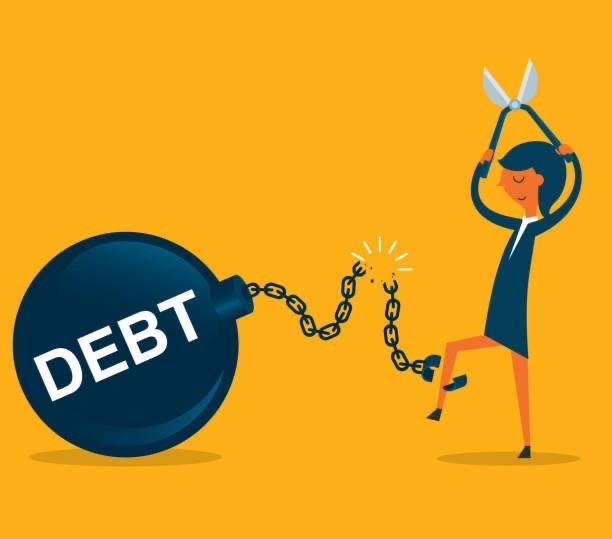Nigeria shines as a nation teeming with cultural wealth, abundant resources, and a treasure trove of possibilities. However, beneath the facade of this abundance, a shadow of impending doom creeps in, threatening to shackle the nation’s destiny: the ominous Federal Debt Crisis. In recent times, the escalating debt in Nigeria has ignited a firestorm of worry, sending shockwaves through the minds of economists, policymakers, and the people. The pivotal question that echoes is whether this mounting debt will be the legacy we recklessly bequeath to our descendants, or if we possess the vision and fortitude to steer a new course that secures their future prosperity.
The debt trajectory of Nigeria has been nothing less than a wild ride in the last few years. The early 2000s saw the nation enjoy a brief period of relative economic stability before the debt situation quickly took a turn for the worse. The government became more and more dependent on borrowing from outside sources as a lifeline as the economy endured numerous shocks and oil prices crashed. The overall public debt has reached previously unheard-of levels as a result of this dangerous cycle of debt buildup; the debt-to-GDP ratio increased dramatically from around 35% in 2015 to a startling 36.7% in 2020. Although the administration argues that this percentage is still within sustainable limitations, we need to consider the price.

The most pressing question that looms large is how these debts will ultimately be repaid. It’s an undeniable fact that future generations will be left to shoulder the weight of this debt burden, not only in terms of repayment but also the potentially detrimental economic consequences that may follow. The primary cause for concern revolves around whether the borrowed funds have been judiciously invested in projects that can stimulate robust economic growth. Regrettably, the verdict on this matter remains elusive. A substantial portion of the borrowed capital has been channeled into routine expenditures and servicing pre-existing debts, painting a grim picture of our economic prospects. The future, it seems, carries a heavy and uncertain financial burden that threatens to hinder the prosperity of generations yet to come.
The debt crisis in Nigeria is more than simply a financial burden; it is a ferocious beast that eats away at the potential of our country. The more we borrow, the more tightly it holds us, causing us to take on additional debt. We cannot afford to overlook the dire fact that Nigeria’s future is in danger of being strangled by this vicious cycle.
Nigeria’s federal debt crisis has not only imprisoned us, but it has also denied possibilities to our children and future generations. The enormous resources used to pay down this debt have destroyed vital industries including infrastructure, healthcare, and education. Our dreams are dashed and our potential remains unrealised as a result of depriving our bright young talent of the opportunity to flourish in a supportive atmosphere.

A ray of optimism exists in the face of Nigeria’s debt problem; there’s an opportunity to turn things around and pave the way for a better future. This shift requires strict budgetary discipline, careful money management, and an unwavering commitment to using borrowed money for initiatives that can spark an economic rebound. Equally important are the investigation of creative sources of income, a severe purge of waste, and the unrelenting effort to eradicate corruption at its source.
The Federal Debt Crisis in Nigeria looms large, demanding our immediate and undivided attention. We’re at a crossroads where the choices are stark: we either bequeath an eternity of debt to future generations or boldly seize the opportunity to secure their prosperity. By steering the ship with responsible governance, transparent fiscal policies, and strategic investments in the right sectors, Nigeria can decisively break free from the suffocating grip of debt. In doing so, we have the potential to leave a legacy marked by boundless opportunities and enduring growth for generations to come. The urgency of this moment cannot be overstated, as the destiny of Nigeria hangs in the balance, and the time to act is now.
Sources
- https://ng.boell.org/en/2023/09/05/nigerias-looming-debt-crisis-and-climate-change-painful-inheritance-future-generations?amp
- https://dailytrust.com/nigerias-looming-debt-crises-climate-change-painful-inheritance-for-future-generations/
- https://dailypost.ng/2023/01/10/nigerias-rising-debt-profile-spells-doom-for-incoming-government-experts/
- https://www.theafricareport.com/255667/nigeria-debt-distress-and-fears-of-a recession/?gbraid=0AAAAAoMvIwMY4Zdk1bPzIXVlbMxdlG7yL&gclid=EAIaIQobChMIoKKFj4WRggMVjOPtCh3BMg5VEAMYASAAEgK4n_D_BwE




